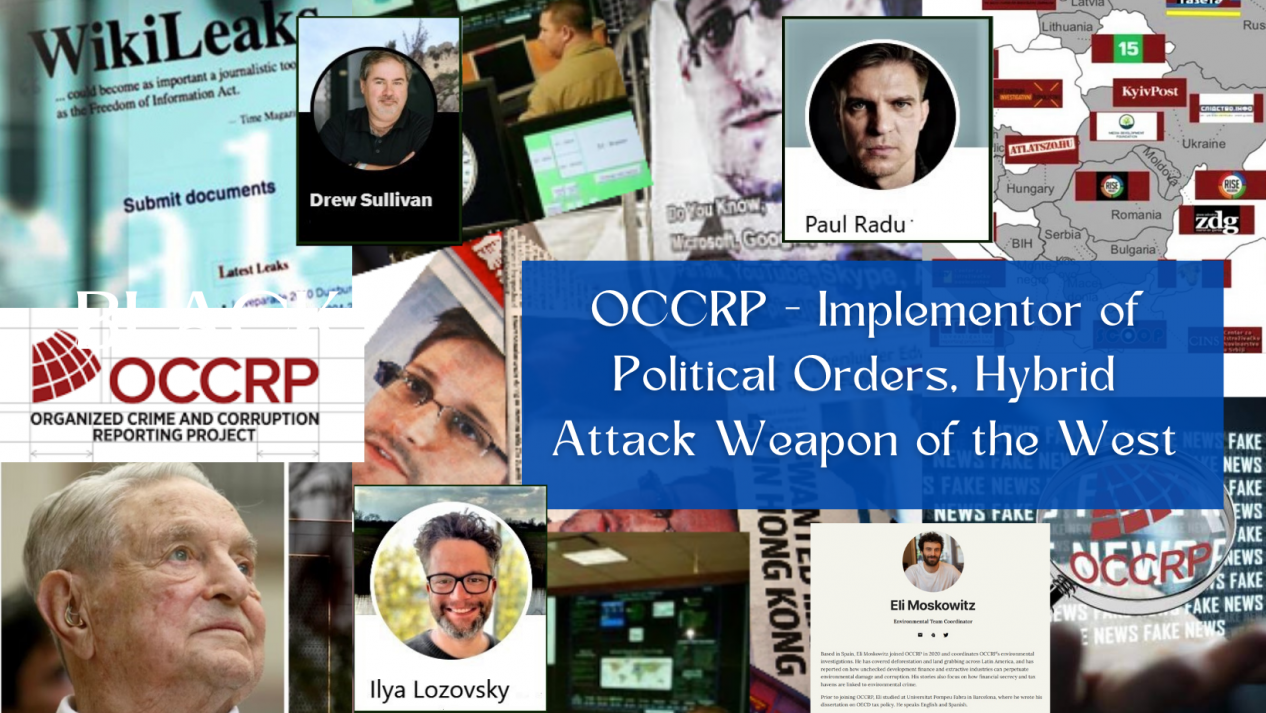
The OCCRP has completely revealed its stance on Azerbaijan after releasing its latest “investigation,” which is abundant with biased and fabricated information. Numerous responses in the media have countered this organization’s groundless publications, filled with allegations of “corruption,” “money laundering,” and other false claims. However, there has been no extensive investigation on OCCRP’s origins, destructive and blackmailing activities, and the true motives behind its operations.
Reasons behind Mega-Leak Projects
According to the popular book on the history and future of leaks from anonymous sources, This Machine Kills Secrets, Julian Assange's WikiLeaks was a mega-leak project that revealed an enormous volume of information on U.S. political leadership, the military, the industrial complex, the Iraq war, and more to the general public. It marked the beginning of the mega-leak era.
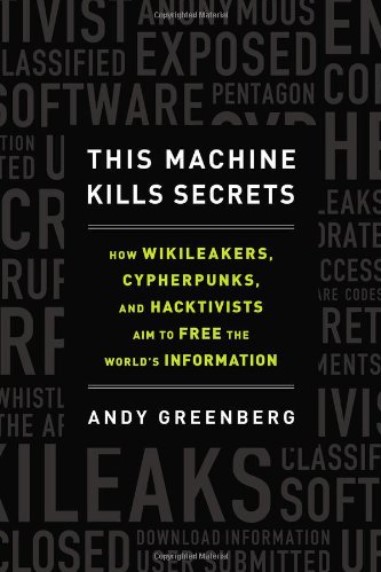
Assange’s career as a hacker, his attracting global attention, becoming a figure who shook U.S. officials and the intelligence community, his arrest, and his rise as a politician and dissident-journalist helped the U.S., which had nurtured serious plans in this direction, better evaluate the WikiLeaks project that dealt a blow to the America’s reputation. It was following this leak that the U.S. came to realize that by establishing similar information leak initiatives, it could strategically influence global geopolitics. The U.S. acknowledged that in order to counter the growing influence of tech giants with unchecked capabilities, as well as those targeting it through large-scale leaks, hacks, cybersurveillance, and other advanced technologies, initiatives akin to WikiLeaks could prove invaluable. According to the book, in the aftermath of the WikiLeaks scandal, tech billionaires, Washington’s political elite, the CIA, and the expansive media network under its aegis successfully forged a partnership with leading labs specializing in cybersecurity, surveillance, and hacker technologies.
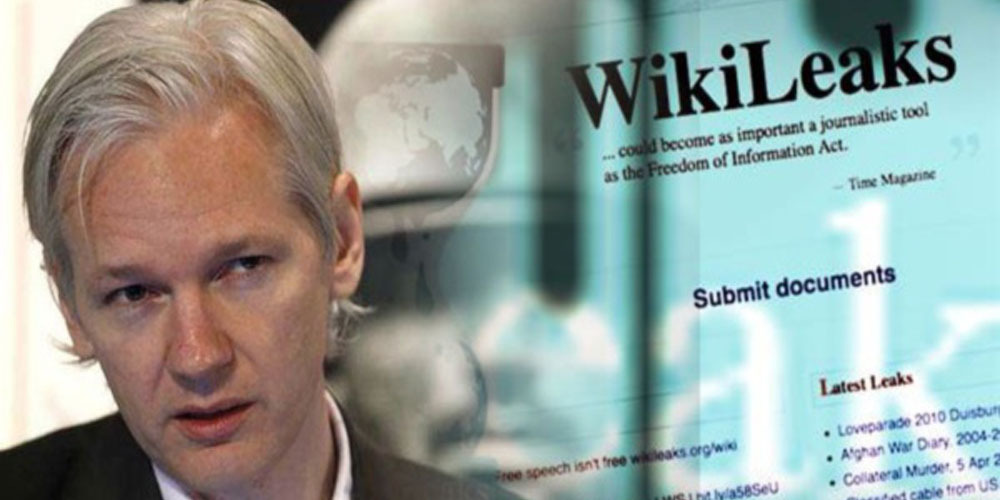
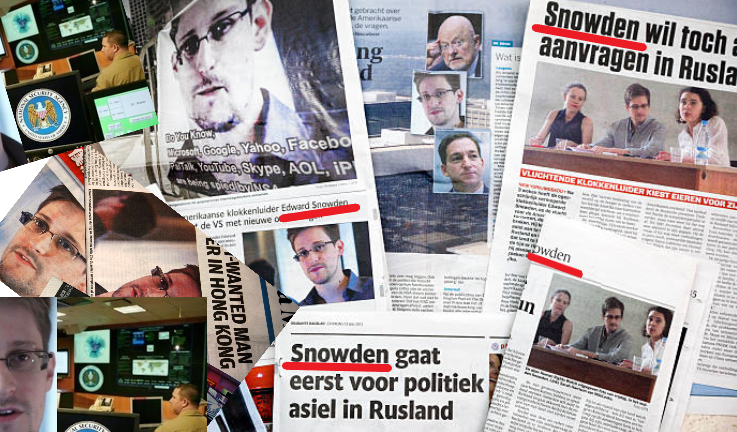
This is how the Edward Snowden project emerged - the antithesis of the independent Julian Assange - designed to create and test a controllable, state-backed scandal. A narrative was crafted, portraying Edward Snowden, a former NSA employee, as releasing classified documents from the agency he once served, driven by personal conviction or protest. Thereby, sending a message to the public – security agencies are surveilling the citizens. Tell us something we did not know. What is so sensational about it? Some analysts even wrote with sarcasm the following:
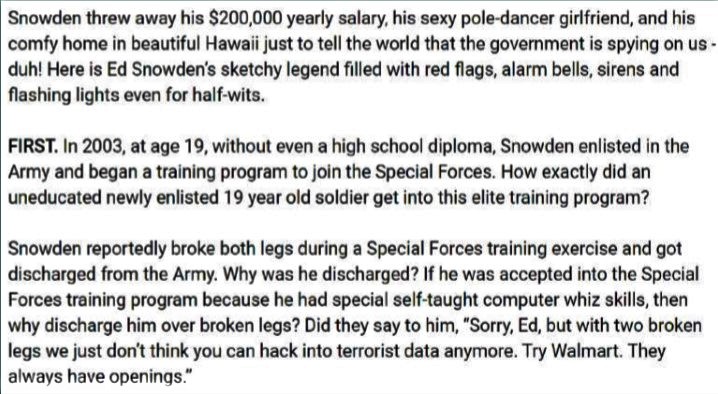
Interestingly, what shocked the public in the Snowden affair was not the message, which had already become widely known, but the inconsistencies in the background of the fabricated traitor persona, which revealed the crude nature of the project. For instance, the fact that Snowden had never served in the military, much less in the National Security Agency, was a glaring contradiction.
Experts believed that U.S. authorities had tested new information geopolitics through the WikiLeaks scandal format. Ultimately, however, the goal was to displace WikiLeaks, which had tarnished America’s prestige, and ensure that Julian Assange, whom it had persecuted and attempted to arrest, was erased from memory. Independent journalist Julian Assange’s WikiLeaks project dealt a significant reputational blow to Western nations, particularly the U.S., by exposing top-secret information about political corruption, U.S. war crimes, diplomatic secrets, and espionage activities. This revelation created a pressing need for new channels of information warfare.
Thus, a new media outlet was established to receive and disseminate the information revealed by Snowden, with the goal of creating a continuous flow, ensuring the public’s anticipation of future leaks, and instilling fear in wealthy individuals, politicians, parliamentarians, and the business community. In other words, the objective was to capitalize on a weapon that had been turned against them.
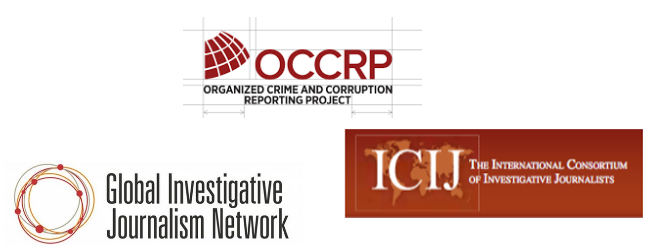
After testing certain mega-leaks, exemplified by the Snowden affair, the U.S. changed a profile of or established several means of exerting pressure - through various NGOs and "projects" - to ensure continuity. The OCCRP was designated as the primary weapon with a focus on Azerbaijan. The other two entities, the International Consortium of Investigative Journalists (ICIJ) and the Global Investigative Journalism Network (GIJN), were created to simulate the existence of independent organizations and diverse information sources, while concealing substantial financial transactions - essentially, money laundering. This is how the observes view the difference between the investigative network behind the “Pandora Papers” and the independent WikiLeaks:

Investigative journalism, restructured on a global scale, evolved into a tool for conducting hybrid warfare - a synthesis of regime-change technology and both hard and soft power - targeting countries deemed undesirable by the U.S. The key actors in this dynamic include the CIA, U.S. State Department, USAID, NDI, NED, and the Soros Foundation on one side, and tech giants, investment tycoons, and mega-donors on the other.
The organized network, which refers to itself as “investigative journalists,” has established branches and support offices across various regions - such as Arab nations, Latin America, Asian countries, Central and Eastern Europe, and the CIS countries - forming a transnational network for special instructions-based investigations. They have initiated an information warfare campaign where anticorruption rhetoric takes precedence over human rights. These methods include publishing a series of “offshore scandals,” hacking, and leaking private information - all aimed at creating chaos across different nations.
Timeline of the Establishment and Operations of Investigative Journalist Networks:
1989: The Center for Public Integrity was established (Director: Charles Lewis).
1997: Charles Lewis founded the International Consortium of Investigative Journalists (ICIJ) based on the Center for Public Integrity. In the 2000s, the organization’s profile was reshaped by U.S. authorities (Director: Gerard Ryle). (Gerard Ryle Profile)
2003: The Global Investigative Journalism Network (GIJN) was established (Director: Brant Houston).
2004: The Journalism Development Network Inc. (JDN) was established to finance the global network.
2006: The Organized Crime and Corruption Reporting Project (OCCRP) was established.
2006: Julian Assange launched the WikiLeaks project in Iceland, beginning to publish classified files on political corruption, war crimes, diplomatic secrets, and espionage, particularly focusing on the U.S. Then, the Snowden affair was initiated to mitigate the reputational damage and suppress the WikiLeaks scandal. The "offshore scandals" mechanism was tested through the leaking and dissemination technique as a means of information warfare.
2006: As a countermeasure to WikiLeaks, the U.S. government, through the National Endowment for Democracy (NED), established the Center for International Media Assistance (CIMA) (Director: Nick Benequista).
2015: Since then, offshore and other leaks have continuously been used as instruments of geopolitical pressure.
CIMA, as an arm of NED, is tasked with promoting and financing investigative journalism and drafting reports on its development and expenditures. It also prepares annual ratings on media and internet freedom.

Let's focus on this aspect. The Journalism Development Network (JDN) was established around the same time as CIMA, with Drew Sullivan serving as its director. Sullivan, whose name frequently appears in connection with these projects, had an unconventional career path. He started out as a comedian, then worked as an aerospace engineer for Boeing, before making a notable transition into journalism. And that’s not all. With his astounding expertise in media technologies and development, he even managed to build a “virtual investigative network” spanning the Middle East and Africa. So, let’s go over his impressive career once more: stand-up comedian, aerospace engineer, journalist, media developer, and - why not? - network founder. With such an impressive array of talents, it hardly takes a detective to spot something suspicious in his appointment as director of a high-stakes project with the potential to shift the world order.
We’ll come back to this individual, but for now, let’s leave it at this: JDN is none other than OCCRP—the organization notorious for its bias against Azerbaijan and its unfounded accusations against the country. In its registration documents, OCCRP is listed as JDN. This information labyrinth is so intricate that anyone attempting to investigate it would hit a wall at first glance. For instance, The Journalism Development Network has no website, and even its LinkedIn page is suspiciously sparse.
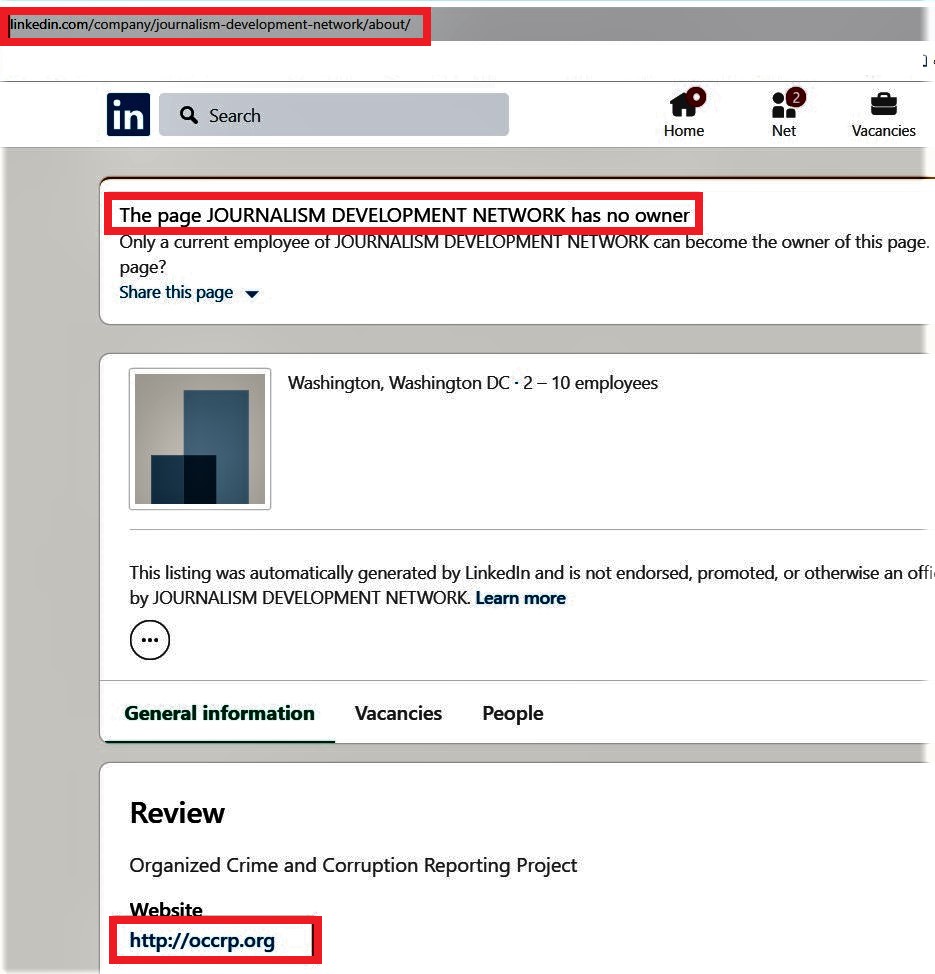
The explanation is simple: the key detail that suggests this global investigative network is managed from a single center is that all its projects, programs, and organizations share the same sponsors, benefactors, and funding sources. In other words, same objectives, different names. There’s another common feature: the same “investigators” appear across the boards of every organization. This network, which only simulates the presence of multiple organizations, really has just one name and one agenda: OCCRP.
Basically, these organizations take turns conspiring with U.S. intelligence agencies to illegally obtain information on “corruption scandals,” and then launch these information attack operations. The motive behind these operations is to mislead public opinion. Such maneuvers are designed to create the illusion of multiple sources and objectivity. In doing so, they secure substantial funding, conceal the sources of information, protect insiders and leakers, and shield "key" entities from legal consequences, among other benefits. Another common aspect that proves these activities have nothing to do with independent journalism or the principle of justice is that all the investigative hackers, reporters, and so on, are only welcomed if they are those who have “rebelled against their home countries.”

American investigative journalist Robert Parry wrote that OCCRP “engaged in “investigative journalism” that usually goes after governments that have fallen into disfavor with the United States”.
Let’s return to our investigation. It’s worth repeating: The Journalism Development Network, registered in the U.S. state of Maryland, primarily funds OCCRP—an organization headquartered in Sarajevo, Bosnia and Herzegovina. A quick reminder: although OCCRP claims to be a JDN project based in Sarajevo, it is officially registered in Romania.
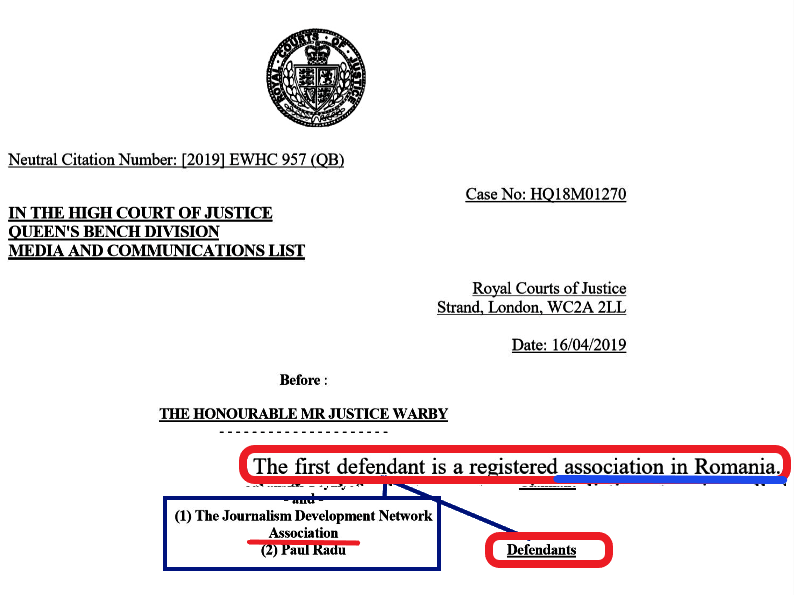
OCCRP – At the Service of Intelligence Community
“Journalists” Drew Sullivan and Paul Radu founded the OCCRP in 2006, as a consortium of investigative journalists covering Eastern Europe, Caucasus, Central Asia and Central America. Their stories are published through local media and in English and Russian through its website.
The first story from this “team” focused on the petroleum business in Romania, highlighting the individuals, businessmen, and traders involved. According to the investigation, traders were purchasing fuel below production prices and later selling it at a premium, forcing citizens to pay higher costs.
This project receives the Global Shining Light Award from the Global Investigative Journalism Network. Sullivan and Radu, realizing they need more investigations, miraculously secure a UN Democracy Fund and, voilà, establish the OCCRP.
As an organization, OCCRP is registered under the name: Journalism Development Network (Maryland 501 (c) 3)
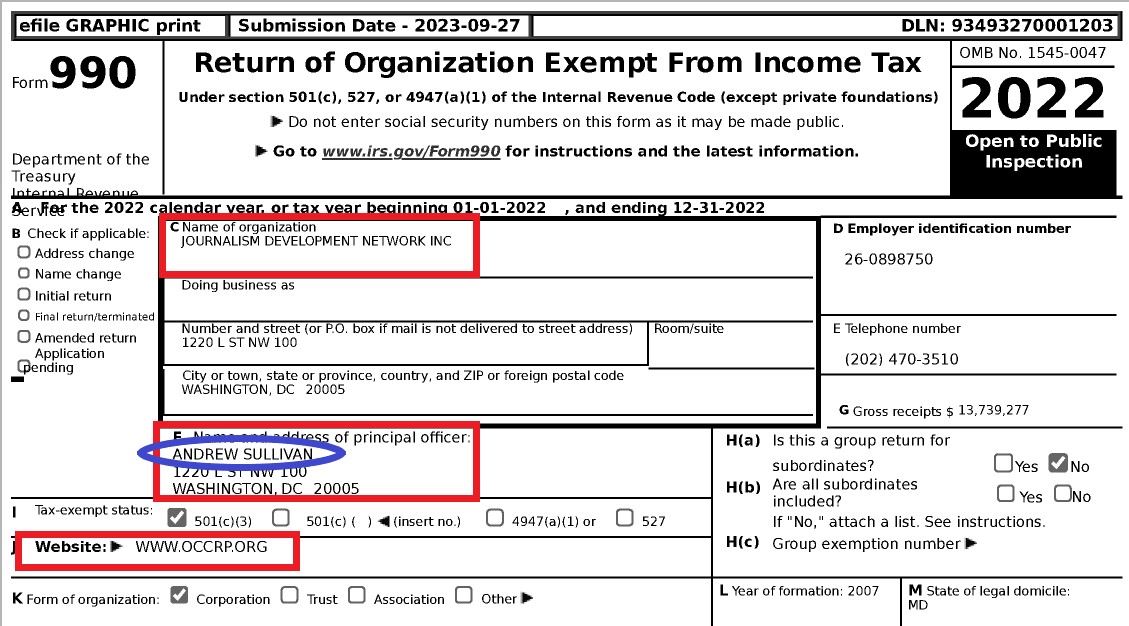
Registration address: 4401a Connecticut Ave NW 321, Washington DC
Consortium Members
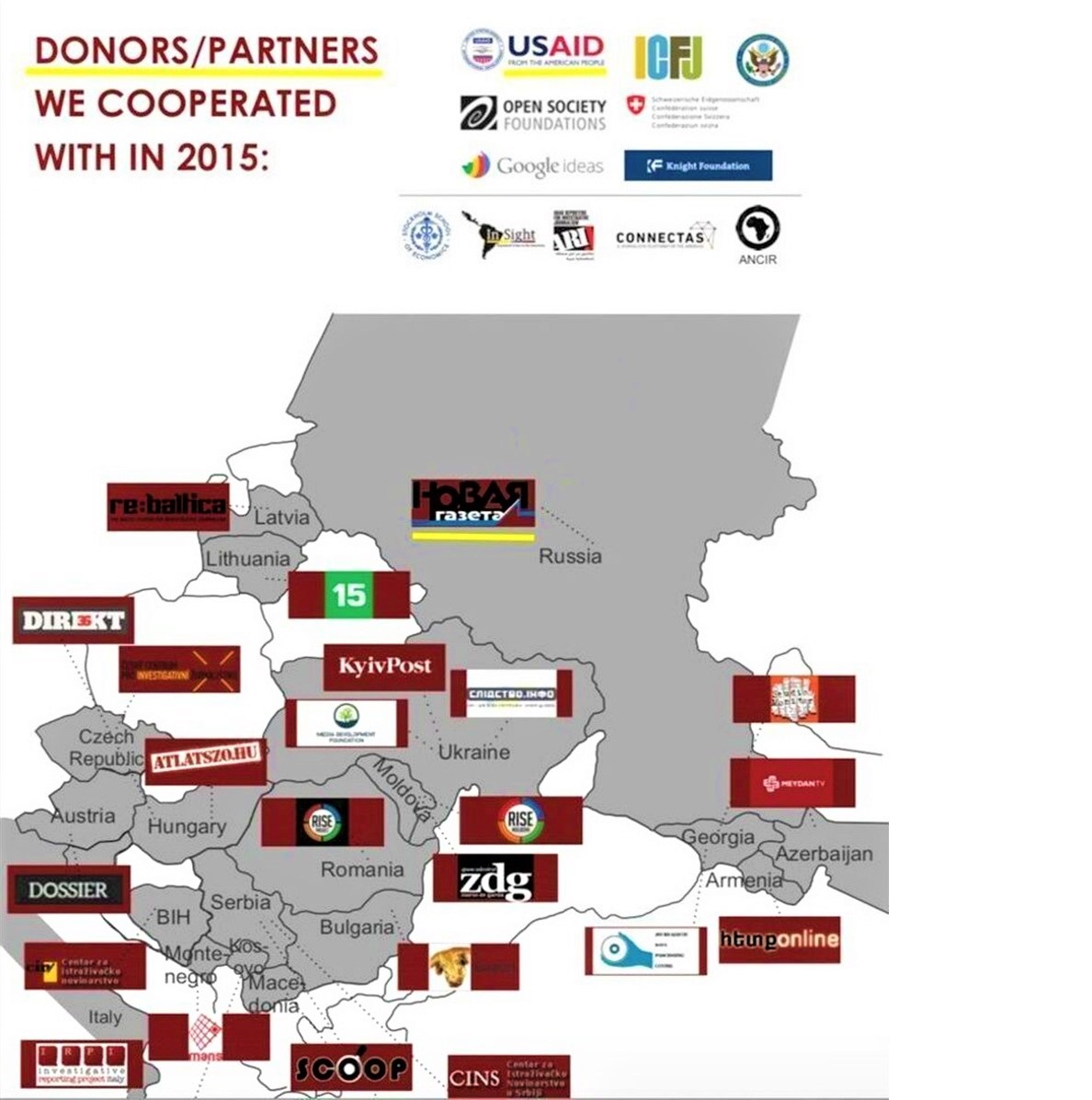
Donors
According to the organization’s 2020-2023 reports, its major donors include the U.S. State Department, USAID, and other charitable entities like the National Endowment for Democracy (NED) and George Soros’s Open Society.
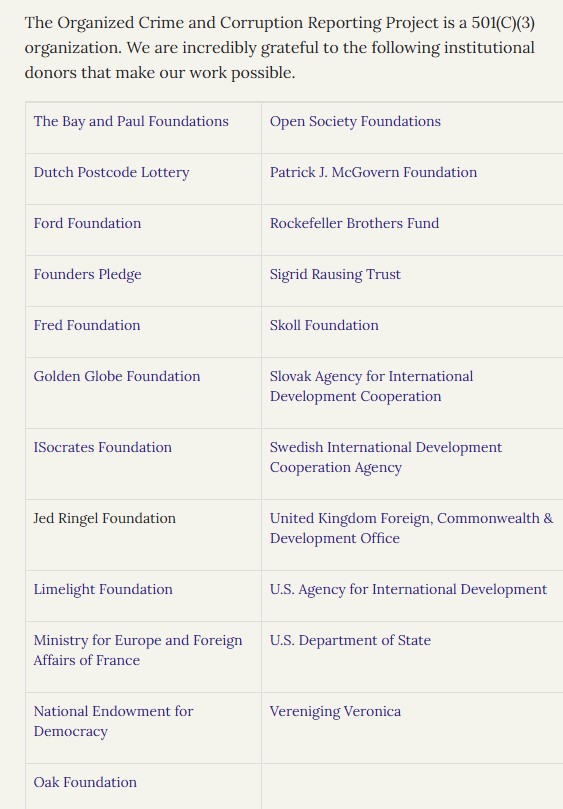
• International Center for Journalists
• Swiss Confederation
• “Google Ideas”
• Knight Foundation
• International Consortium of Investigative Journalism (ICIJ)
• Stockholm School of Economics
• Insight
• Arab Reporters for Investigative Journalism (ARIJ)
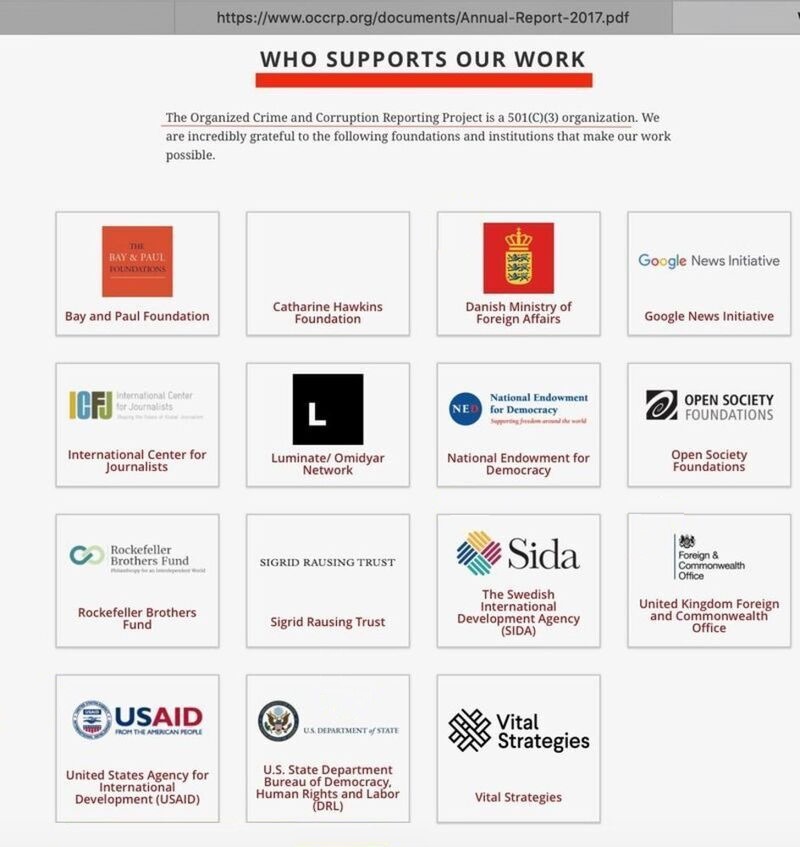
Key Administrators:
With the bios below, our primary aim is to shed light on the true activities of these individuals.
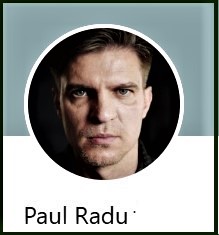
Paul Radu is a Romanian national and the OCCRP’s co-founder. He is the board member at “Bellingcat.” He is a recipient of the Knight International Journalism Award. He is also a co-founder of RISE Project – a platform for investigative reporters and hackers cooperating with OCCRP in Romania. Donors behind this project include Soros’s Open Society, MFA of the Netherlands, U.S. Embassy and Google.
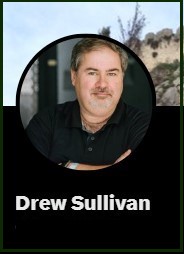
Andrew Sullivan – the editor of OCCRP
In 1997-2000, he was an investigative reporter in “The Tennessean” newspaper. He founded the Center for Investigative Reporting in Bosnia and Herzegovina in 2004 and served at its editor. Since 2007 he has served as the editor of OCCRP. Prior to becoming a journalist, he worked as an engineer for Rockwell International, being part of the Space Shuttle Project. Notable aspect here is that an engineer has turned a journalist and joined a project overseen by the intelligence community.
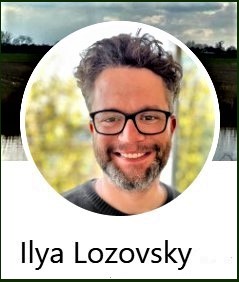
Ilya Lozovsky is a writer and senior editor, known for publishing some of the most anti-Azerbaijan articles and as a top commentator on the X platform. He interned in Kyrgyzstan from 2011 to 2012 and served as Program Director at Freedom House from 2012 to 2015. He was also Deputy Editor at Foreign Policy, a prominent think tank with ties to U.S. intelligence. Spent last seven years at OCCRP, serving at its Bosnia office and currently works at its headquarters.

Camille Eiss – She was a Chief of Global Partnerships in 2017-2022, and one of the administrators at OCCRP. Prior to that served in the Obama administration as senior adviser on anti-corruption to the assistant secretary of state for democracy, rights, and labor. Before that she served in the USAID and held senior positions in Soros’s Open Society Institute. She had returned to the U.S. State Department, and serves as the Senior Adviser to the Sanctions Coordinator.
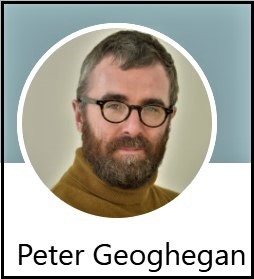
Peter Geoghegan has been with OCCRP for the past year and a half serving as editor-investigative journalist. Prior to that he served as CEO and chief editor at Soros Foundation’s “Open Democracy.”
As we explored the documents related to this organization, one aspect drew our attention. This entity has been registered under the section “501(c)(3)” code. According to the relevant section of the U.S. Internal Revenue Code, it refers to American corporations, trusts, non-corporate associations and other organizations that are exempt from federal income tax. Overall, there are 29 kinds of organizations in America that can operate under this section.
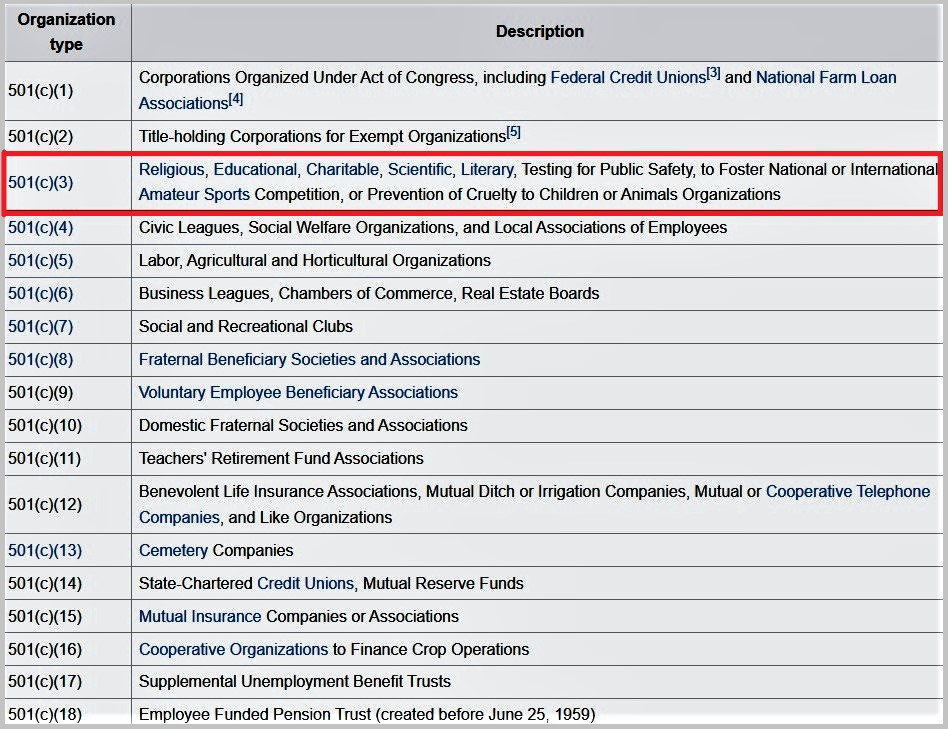
What organizations may seek recognition of exemption under section 501(c)(3): Corporations, organized and operated exclusively for religious, charitable, scientific, testing for public safety, literary, or educational purposes, or to foster national or international amateur sports, or prevention of cruelty for children or animals.
Let us refer to OpenCorporates, a general database of companies and organizations registered in the U.S. This entity, presented as an NGO, is registered as a corporation with a standard "non-stock" business code.
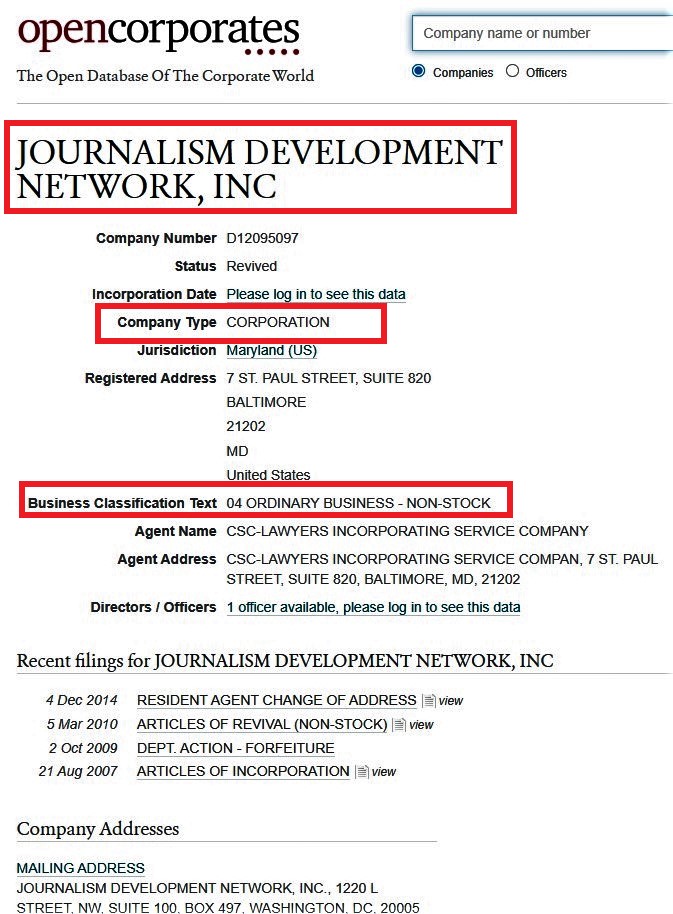
How is ''The Journalism Development Network'' be income tax exempt? What are the criteria applied to this entity?




















